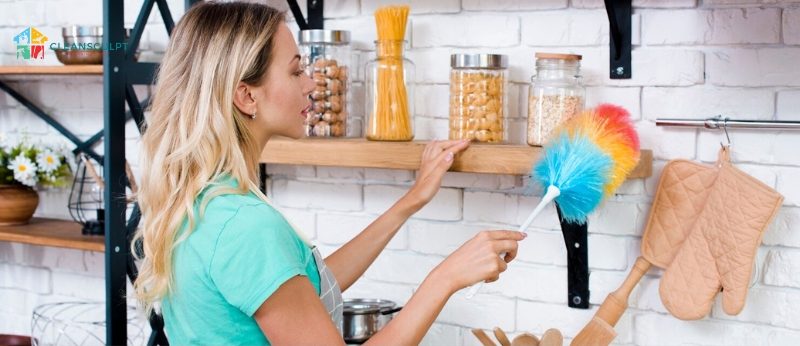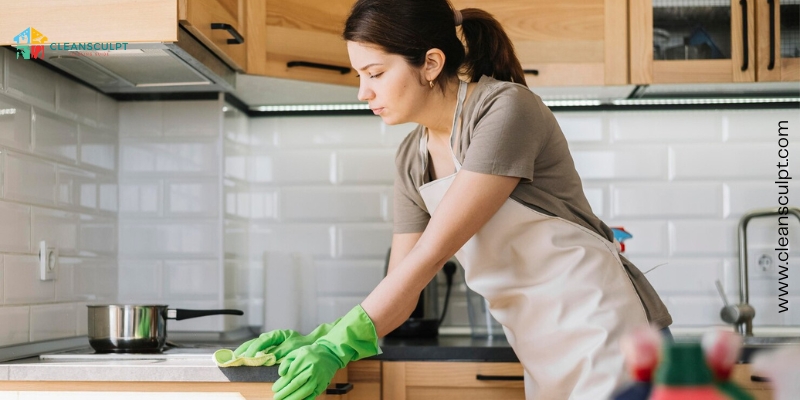Commercial kitchen cleaning is crucial for any business in the food industry. A clean kitchen ensures customer satisfaction and adherence to health standards while minimizing contamination risks. Let’s dive into practical strategies and insights that make commercial kitchen cleaning manageable and effective.
Why Commercial Kitchen Cleaning Matters
A hygienic commercial kitchen protects patrons from foodborne illnesses while upholding your business reputation. Here’s a breakdown of some vital reasons why rigorous cleaning should be a priority:
Compliance with Health Regulations: Regular inspections by local health departments require adherence to stringent cleanliness standards.
Safety and Efficiency: Reduced fire hazards and contamination risks create a secure and productive environment.
Extended Equipment Lifespan: Proper maintenance minimizes breakdowns and prolongs equipment usage.
Key Steps for Comprehensive Commercial Kitchen Cleaning
Daily Surface Cleaning
Clean countertops, cutting boards, and prep areas to prevent cross-contamination. Use food-safe disinfectants for a thorough cleanse.
Equipment Sanitation
Deep-clean all equipment daily, including grills, fryers, and ovens. Disassemble where necessary to scrub hard-to-reach spots.
Floor Scrubbing and Degreasing
Sweep and mop floors, focusing on grease-prone zones around fryers and grills. Utilize non-slip, grease-resistant mats.
Ventilation and Hood Cleaning
Weekly hood and duct cleaning reduce grease build-up and minimize fire risks.
Storage and Organization
Rotate stock and ensure perishables are promptly used. DE clutter to discourage pests and promote airflow.
Best Practices for Different Kitchen Areas
A commercial kitchen comprises many parts, each needing special care. Here’s a targeted plan for specific sections:
Cooking Stations
Remove grease and food residues daily. Schedule monthly deep cleans for grills, stovetops, and fryers.
Dishwashing Area
Clear and sanitize all surfaces, descaling dishwashers weekly to prevent build-up.
Refrigeration Units
Check temperatures regularly. Clean shelves and walls weekly while discarding expired goods.
Ventilation System
Schedule monthly inspections and bi-monthly deep cleans. Replace filters and clean exhaust hoods.

Table: Commercial Kitchen Cleaning Checklist
Area | Daily Tasks | Weekly Tasks | Monthly Tasks |
Cooking Stations | Scrub surfaces, clear food debris | Check fryer filters, sanitize grills | Disassemble, deep-clean components |
Dishwashing Area | Rinse sinks, clear food debris | Descale dishwasher | Inspect plumbing |
Refrigeration | Wipe shelves, discard expired items | Clean walls and floors | Check seals, deep-clean interiors |
Ventilation System | Replace hood filters | Inspect exhaust systems | Service ducts, clean hoods |
Implementing a Cleaning Schedule
Consistency ensures effectiveness in commercial kitchen cleaning. Develop a cleaning schedule tailored to your kitchen’s needs:
Assign Responsibility
Allocate tasks among kitchen staff for accountability.
Time Allotment
Designate time slots at shift ends for daily tasks and deep cleans.
Checklist Review
Review cleaning checklists before closing to ensure all tasks are complete.
FAQs About Commercial Kitchen Cleaning
What are the daily commercial kitchen cleaning tasks?
Daily tasks include wiping down all prep surfaces, cleaning cooking equipment like grills and fryers, mopping floors, sanitizing cutting boards, and emptying trash. Maintaining a clean workstation ensures safe food preparation and reduces health code violations.
How often should ventilation systems be cleaned?
Exhaust hoods should be cleaned weekly, while the entire system, including ducts and fans, requires bi-monthly maintenance. Regular cleaning prevents fire hazards and ensures proper ventilation.
What chemicals should be used for commercial kitchen cleaning?
Choose food-safe disinfectants for surfaces and equipment. Degreasers help remove grease buildup, while specialized cleaners target stainless steel and tile floors. Always follow manufacturer guidelines to ensure safety.
How can I prevent pests in my commercial kitchen?
Store food in sealed containers, clean spills promptly, and maintain a waste disposal system. Regular inspections, proper storage, and professional pest control services will keep your kitchen pest-free.
How does kitchen cleaning impact equipment longevity?
Frequent cleaning prevents grease build-up and corrosion, reducing wear and tear. Proper maintenance extends equipment lifespan and minimizes repair costs.
Should I hire a professional cleaning service?
Professional cleaners bring specialized knowledge and equipment to deep-clean hard-to-reach areas, ensuring compliance with health regulations. Hiring one for monthly or quarterly cleans can complement daily in-house tasks.
How can I motivate staff to maintain cleanliness?
Offer training sessions, incentives, and positive reinforcement. Create a friendly competition or reward staff for exceptional cleanliness to foster teamwork.
Conclusion
Implementing a well-structured commercial kitchen cleaning regimen is crucial for success in the food industry. Stay ahead of inspections, promote staff hygiene, and safeguard your business’s reputation. Visit Clean Sculpt for more expert cleaning guides and tips tailored to your business!

